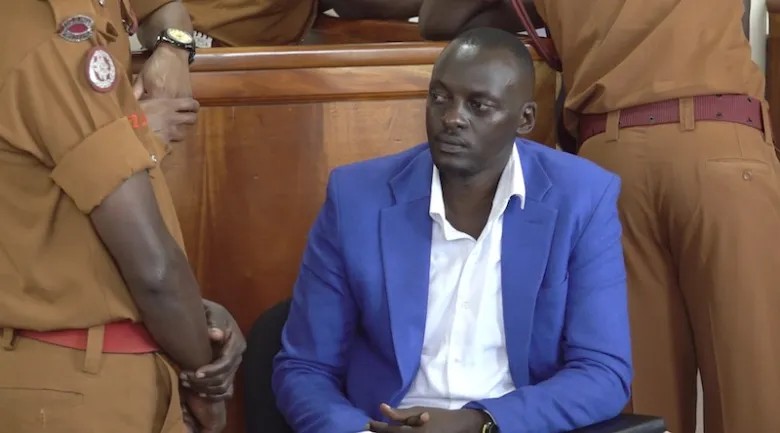
Legal professionals and human rights advocates are raising alarms over what they describe as increasingly punitive and unconstitutional bail conditions in Uganda’s courts. This comes in the wake of the release on bail of renowned human rights lawyer Eron Kiiza, who had been serving a nine-month sentence for contempt of court handed down by the General Court Martial.
Kiiza, who was granted bail by High Court Judge Michael Elubu on April 4, was ordered to pay UGX 20 million in cash, surrender his passport, and report monthly to the court registrar.
“The Constitution presumes every accused person innocent until proven guilty. Bail should not feel like punishment before conviction,” said Amos Kuuku, a representative of the Uganda Law Society (ULS), during a press briefing in Kampala. “When you impose such exorbitant bail amounts, you’re essentially excluding the poor from justice.”
Kuuku criticized the inconsistency of bail terms even within the same courtroom. “We have seen cases where the same judge gives one person UGX 500,000 bail and another UGX 20 million for similar charges. Where is the logic? Where is the justice?” he asked.
The ULS further cited troubling examples of how harsh bail conditions are impacting ordinary citizens. “In Kaberamaido, a widow had to sell her only two goats just to raise UGX 100,000 for bail. In Luweero, a man was detained for 18 months because he couldn’t raise UGX 1.5 million,” Kuuku noted.
ULS Eastern Uganda representative Eddy Nangulu also weighed in, echoing concerns that bail is now being used as a form of pretrial punishment. Quoting Kiiza’s recent social media post, Nangulu said: “Detainees say judges and lawyers need to first go to prison to understand what is at stake.” He added, “This speaks volumes. The system is failing those it’s meant to protect.”
Kiiza’s legal troubles have sparked broader legal debates. His legal team has appealed his conviction, arguing that the General Court Martial had no jurisdiction over him as a civilian. “We are challenging both the process and the punishment,” said one of Kiiza’s lawyers. “The Supreme Court has previously ruled that military courts are not independent or impartial enough to try civilians.”
Human rights groups have also condemned Kiiza’s arrest and detention. “This was not just a violation of his rights, but a chilling message to other lawyers defending unpopular causes,” said a representative from a Kampala-based legal aid organization.
The Uganda Law Society is now calling for urgent reforms to the bail system. “Justice must be accessible to all, not just those who can afford it,” Kuuku said. “Bail is a constitutional right—not a privilege for the wealthy.”
As public scrutiny grows and pressure mounts on the judiciary, legal experts hope that the case of Eron Kiiza will serve as a turning point in the push for equitable bail practices in Uganda.